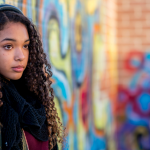School-age can be a particularly challenging time for parents. As kids go to school, there’s a bit of distance between parents and children due to the stretches of the day when parents aren’t there to see every interaction their child has. As a result, parents must rely on their children’s narratives, and it can be hard to know the interworking of their child’s lives unless something is going wrong or there are nonverbal signs. Learning to cope with unkind behavior at school is a significant opportunity for growth and learning. Whether you are a teacher, concerned parent, or loved one seeking more information for a child you care about, your role in supporting a child in managing such situations is invaluable. This blog is a great place to identify how to support a child and foster resilience, recognizing your crucial role in this process.
Learning how they Fit in and how they feel
School is a platform that teaches children autonomy and facilitates forming relationships beyond their immediate family. It’s a place where they grasp the dynamics of group settings, learn social norms, and define their roles. As an adult in their life, one way you can support a child as they navigate this time is to help them figure out what essential values they have about what makes a good person or a good friend and help them find descriptive words to describe how their feeling when they talk to you. The more in tune they are with their emotions, the easier it will be to help them articulate if conflict arises. This emotional understanding and articulation process can significantly contribute to their emotional well-being, giving them hope and optimism about coping with unkind behavior.
Shifting Perspective: Understanding Unkind Behavior
While it is frustrating to watch as a parent or loved one, it is essential to remember that unkind behavior is a natural part of children’s learning social dynamics. As children find their voice to express what they need, they don’t always know the skills to do so without causing hurt feelings in others; this can be because of observations of behavior at home or learned behavior they need to do to meet their needs. Unkind behavior can also be due to low impulse control, low self-esteem, jealousy, or developmental issues, such as Autism, that can make it difficult for a child to read social cues. As a role model to children, one way you can be supportive is to help your child channel empathy for the person, not the behavior. For example: “Jealousy usually comes because of someone struggling with their self-worth, and it is more about how they feel about themselves even when directed to someone else.” If your child doesn’t feel targeted because of who they are, they may find empathy easier, even if they feel hurt. By nurturing empathy, children can develop a deeper understanding of their peers’ perspectives, which can mitigate conflicts and foster compassion.
Standing firm and Staying Skillful: Effective Communication
One of the first steps a child can take when unkind behavior occurs is to name their feelings and what events/words made them feel that way. This step allows them the space to process the impact, and it can allow parents or loved ones to validate their feelings and help them connect with their thoughts. A good question is what they need to feel better, whether from the person or in general; open-ended questions give agency in determining how to ask for what they need. Once these feelings are processed, here are some tools to help children communicate with the person who is being unkind:
- Use “I” Messages: When talking to a person about a conflict, start by saying how you feel. Avoid blaming or “you” messages, as they can make a person feel defensive. Focus on your feelings, the event (not the person) that caused it, and what would help you feel better. “I” Messages are also a great tool to use with trusted adults, such as teachers. It is a great way to empower children to advocate for their needs, especially when parents or loved ones aren’t around. When using these strategies, you can feel confident in your ability to guide your child through these challenging situations, knowing that you are equipping them with effective tools for communication.
- DEARMAN: A great interpersonal effectiveness skill used in Dialectical Behavior Therapy is this acronym, which stands for:
- Describe the situation with just the facts.
- Express your feelings and opinions about how it made you feel.
- Assert yourself by asking for what you want or saying no directly.
- Reinforce or reward the person by explaining how it would support your relationship.
- Mindful: keep your goals in mind, and don’t lose sight or get caught up in emotion; stay present.
- Appear confident- keep a strong voice and keep your head up.
- Negotiate- be willing to meet in the middle and ask for solutions.
- Set Boundaries: If conflict includes things that make you uncomfortable (ex, violation of personal space, name-calling, intentionally badgering a person), you can state what the behavior is that is not working for you, ask them to stop, and let them know the consequences if they continue. It is also helpful if you can offer a different thing for them to do instead (For example, if you want my attention, I’d prefer you call my name once instead of hitting me on the shoulder; it startles me when you do that)
Coping beyond self-advocacy: Self-Soothing
Sometimes, even when we are skillful, conflict can take a lot out of us and leave us feeling anxious, frustrated, sad, and exhausted. When conflict arises, our brains sometimes interpret this as a threat and trigger our fight-or-flight response. Some signs of this can include heart racing, sweating, jittery, shaking, and wanting to cry. The tricky thing about these signs in our body is that they can impact our ability to reason through a problem (For more on this, check out my blog on Amygdala Hijacking). Here are some tips below to help regulate during conflict:
- Slow Down. Before you act on a hot emotion, consider whether your reaction is emotional and impulsive or well-thought-out and calm; if you need more clarification, wait a few minutes and revisit it.
- Take advantage of cold temperature- Cold water is a great way to help you regulate your breathing; you can hold ice, splash water on your face, put a cold rag on your forehead or neck, or sip ice water. Intense cold temperatures force your parasympathetic nervous system to regulate and allow you to calm down, especially during panic or anxiety attacks.
- Warm temperatures to relieve stress- A warm shower or compress is a great way to relieve stress and tension. The warm temperature releases oxytocin, which allows the brain to relax.
- Exercise – If you feel like you have so much energy or emotion that it’s bursting out of you, physical exercise is a great way to get your heart rate up and release energy and endorphins.
- Deep breathing- Box or belly breathing is another excellent way to relieve anxiety during conflict. When stressed or upset, our breathing tends to become shallow, so we don’t get as much oxygen. Deep breathing, like cold water, activates your parasympathetic nervous system and communicates to the brain that you are safe; it also allows more oxygen to flow to the thinking brain and helps you calm down.
- Talk back to the emotion- remind yourself that this is a challenging moment and the feelings might be intense, but they will pass. This moment doesn’t define who you are
Crafting and Promoting Resilience
Tools such as these, paired with an open line of communication and support, help children build resilience and bounce back from adversities. Reframing conflict as opportunities for growth allows children to embrace challenges and celebrate accomplishments, both big and small. As parents, it is essential to collaborate with teachers and school staff to inform them of conflicts that are coming up so they can promote a supportive and empathetic environment for conflict resolution. It is also imperative to teach children how to advocate for themselves to teachers respectfully so they can be independent and find their voice. By working together, students, parents, and educators can empower children to succeed socially and emotionally by creating a supportive environment.
Navigating conflict and unkind behaviors is a cornerstone of children’s emotional and social development. If your child struggles with navigating conflict, therapy might be an excellent place for them to work through their thoughts, practice how to respond in the face of unkind behavior, and explore more deeply how they feel in addition to your guidance.
By equipping children with the tools to manage such situations, fostering empathy and resilience, and collaborating with schools, we can empower them to tackle the complexities of social interactions with confidence and compassion.



